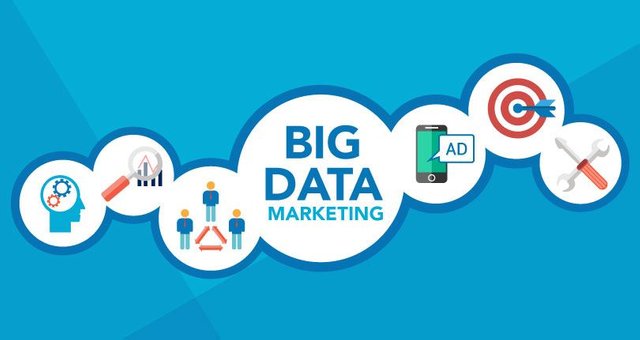What Influence Has Big Data Had on Marketing and Advertising Strategies?
Customer data is more easily accessed and abundant to advertisers and companies than ever before.
At what point does the average person see the potential dangers and consequences associated with the use of their data or the construction of individuals digital profiles? Many of us have made a google search on a specific product, only to have related advertisements show up on webpages for weeks. It is truly shocking when we examine the lack of oversight and regulation on data collectors, data miners, and data farms. The centralized collectors of individuals data, such as Google and FaceBook, do a great job of concealing their true activities with their customers' data. The reason why these centralized services are able to charge so much for advertising is largely due to the specific demographic profiles and abundant amount of data, which allows for advertisers to be very precise with their target market. There are clear advantages for centralized data collectors and data middlemen, but what are the effects on the individual users?

How is individuals' data collected and then interpreted?
Every FaceBook search, Google search, website visit, and other actions conducted online are all collected and stored by the specific centralized service. The raw data is worth very little by itself, but when the data is interpreted and connected to the rest of an individual's digital profile the potential consequences become clear. Not only can the digital profiles show everything that an individual looked at, through the use of algorithms and data mining the firms can interpret the data and decipher the likely reason you looked at the content and the likelihood of repeating that specific action. In cases such as FaceBook and Google, not only is user data used for advertising on the specific platform, but the raw data is also commonly sold to third parties. These massive third party buyers of the data then mine the data, which simply means they interpreted the data and display it in a useful form, and then are able to have virtually complete control over what the final data is used for.
The lack of oversight regarding the uses of customer data is extremely dangerous.
Companies may describe what is done with customer data in their privacy policy, but as we all know those are rarely red due to their lengths and intentionally complicated structure. Big Data has been one of the fastest growing industries over the past decade, yet it is seldom discussed or talked about publicly. A large percentage of the individuals using these services are still largely in the dark regarding what is done with their data. When all businesses practice the same tactics of abusing customer data, then the behavior is often just accepted by individuals as commonplace. If a company were to abstain from abusing their customers' data, then the company would be at a clear disadvantage compared to other businesses.

Wait a minute, FaceBook and Google have lobbying group?
Another important aspect to consider when discussing the lack of regulation surrounding data collection is the fact that FaceBook contributed a total of 8.62 million dollars to lobbying groups in 2016 alone. Although these lobbying groups are not only a FaceBook lobby, but the issues that these companies argue and petition for are directly aligned with the interests of Facebook. Google is also engaged with lobbying groups that often fight for the same interests as those of FaceBook, and contribute to at least 2 groups that FaceBook also funds. When we look at what types of lobbying groups receive this money, it is clear that FaceBook's biggest contributions went to groups "advocating" Copyright, Media and publishing, and technology related issues. When the centralized companies have influence over legislation related to data laws and regulations, how can individuals expect laws to be enacted for the protection of the users and not the massive institutions?
The current atmosphere regarding data is a utopia for the large centralized web companies, marketing companies, and institutions.
Do individuals truly grasp the depth of having their complete digital history stored by a single party? In all reality, there is no way to truly know how many different companies and institutions have access to that sensitive information. Even after the Edward Snowden leaks which simply confirmed what many had already assumed was taking place, the public still doesn't appear to care about their data or digital privacy enough to do anything about it. Due to the fact that the data collection is largely passive, many individuals fail to see the full danger that this data collection presents because it doesn't directly impact their daily lives. If this type of view continues to be held by the majority of the public, then it is unlikely that the data collection will ever stop.
Mass data collection in the name of convenience.
Many of the biggest centralized services, such as Google and Amazon, try to show the public that by collecting data they are actually making things more convenient for the user, but that simply isn't the case. The sole reason for the collection and use of users' data is the monetary benefits that the companies receive. Whether the company is using the data to advertise products directly based on you interests, such as Amazon and Google, or the company is mining the data for their own purposes and then storing and selling the mined data, the biggest reason companies engage in this behavior is to monetize it one way or another. The open and unregulated storage and sale of data incentivise firms to collect as much data as they can and store it for vastly greater periods of time than what is necessary or practical. Users are led to believe that all of these uses are to directly boost their experiance on the platform, but this couldn't be further from the truth.

Marketing tactics and methods have changed drastically since the beginning of Big Data.
Many of the centralized companies and institutions that directly or indirectly benefit from the collection, sale, mining, storing, or using individuals' data will claim that the implementation of Big Data gave rise to a whole new level of efficiency in marketing. The part that the parties don't discuss is the cost at which this new level of efficiency on individuals. The sheer amount of data collected on individuals has allowed marketers to have more specific target markets than ever before, but this type of marketing was implemented without any form of consent from the individuals. The ability to advertise directly to a very specific demographic has lowered the barrier to entry for small firms that wish to advertise to a relatively low number of individuals, but to a very specific demographic. The problem isn't necessarily the use of individuals data for advertising purposes, but rather the problem lies with mass companies having complete control over the use and distribution of individuals data and leaving no power to the individuals to determine their data's uses.
If nothing changes, what is in store for the future?
Unless public opinion finally begins to look negatively on big data and action is taken regarding data collection, then this type of specific marketing is just the beginning. There has been discussion by numerous companies to implement a system that will send customers specials and coupons directly to their mobile phones when they enter a specific store. Implementing a system like this would currently make a good majority of people worried about the implications, but it is not too far in the future. When we consider the online advertising just 5 years ago, it becomes evident that the current forms of online advertising are much more personalized and intrusive. Tactics like this cannot be implemented overnight, but once it becomes adopted by a major company other companies are sure to follow suit.When we imagine what marketing tactics will be employed 10 years from now if nothing changes, the options are absolutely limitless. There is a guarantee that as the marketing tactics and methods become more personalized and direct, both marketing and data collection will become increasingly intrusive and dangerous to individuals.
I really hope that you enjoyed this post, please feel free to leave any comments or start any discussions below. If you liked this post please consider following me if you would like to see more similar content! Thanks for reading!
FaceBook Lobbying sources: https://www.opensecrets.org/lobby/clientissues.php?id=D000033563&year=2016